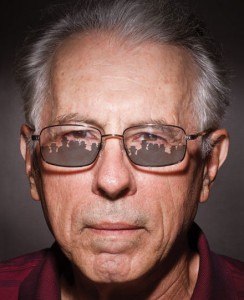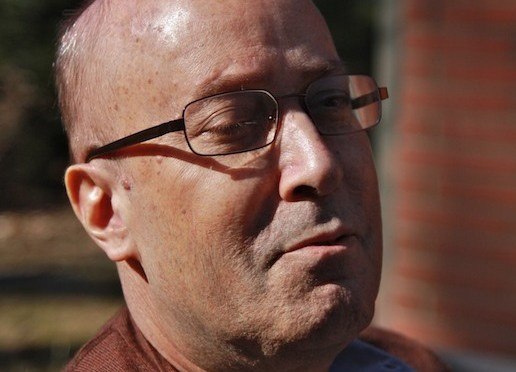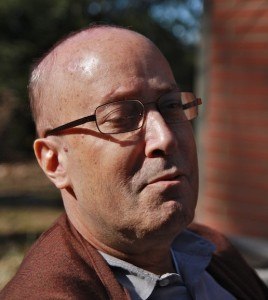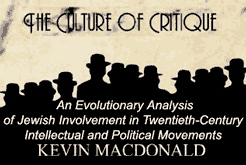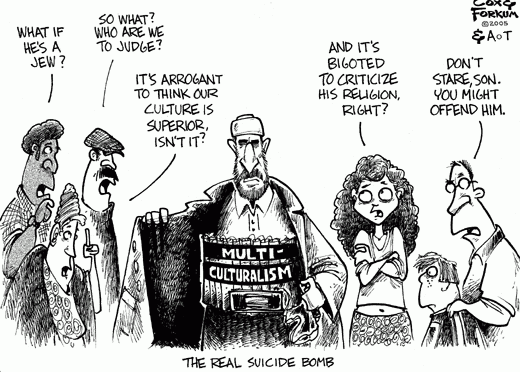Podcast: Play in new window | Download
This time we’ll contrast William Graham Sumner’s view of ethnocentrism with Kevin MacDonald’s view specifically focused on the jews. Sumner wrote in 1907, when it was still reasonable to imagine that the White man ruled America and Europe, or as Francis Parker Yockey put it, ruled 18/20ths of the world.
Recall Sumner’s definition of ethnocentrism:
15. Ethnocentrism is the technical name for this view of things in which one’s own group is the center of everything, and all others are scaled and rated with reference to it.
Though Sumner saw the significant role jews played in the development of Western folkways and mores, and noted their ethnocentrism, he showed no discernable sign of alarm concerning jewish power.
A hundred years later it is still common, more common, to flatly ignore the jews or even deny that the jews have any power. However, it is more difficult to defend such a position in the face of the jews’ dominance in the realms of finance, media, and politics. Today those who are critical of jewish influence and power are openly punished for doing so.
Kevin MacDonald is a good example. Like Sumner, MacDonald is an academician specializing in social psychology. He has described the jews not only as ethnocentric, but as a hostile elite with a particularist morality, where “good is what is good for the jews”. In fact, MacDonald has noted the unique and extreme qualities of jewish ethnocentrism, often referring to it as hyperethnocentrism.
The abstract for MacDonald’s monograph, Understanding Jewish Influence I: Background Traits for Jewish Activism, begins with this sobering overview of the history of White/jew relations:
Beginning in the ancient world, Jewish populations have repeatedly attained a position of power and influence within Western societies. I will discuss Jewish background traits conducive to influence: ethnocentrism, intelligence and wealth, psychological intensity, aggressiveness, with most of the focus on ethnocentrism. I discuss Jewish ethnocentrism in its historical, anthropological, and evolutionary context and in its relation to three critical psychological processes: moral particularism, self-deception, and the powerful Jewish tendency to coalesce into exclusionary, authoritarian groups under conditions of perceived threat.
Jewish populations have always had enormous effects on the societies in which they reside because of several qualities that are central to Judaism as a group evolutionary strategy: First and foremost, Jews are ethnocentric and able to cooperate in highly organized, cohesive, and effective groups. Also important is high intelligence, including the usefulness of intelligence in attaining wealth, prominence in the media, and eminence in the academic world and the legal profession. I will also discuss two other qualities that have received less attention: psychological intensity and aggressiveness.
The four background traits of ethnocentrism, intelligence, psychological intensity, and aggressiveness result in Jews being able to produce formidable, effective groups—groups able to have powerful, transformative effects on the peoples they live among. In the modern world, these traits influence the academic world and the world of mainstream and elite media, thus amplifying Jewish effectiveness compared with traditional societies. However, Jews have repeatedly become an elite and powerful group in societies in which they reside in sufficient numbers. It is remarkable that Jews, usually as a tiny minority, have been central to a long list of historical events. Jews were much on the mind of the Church Fathers in the fourth century during the formative years of Christian dominance in the West. Indeed, I have proposed that the powerful anti-Jewish attitudes and legislation of the fourth-century Church must be understood as a defensive reaction against Jewish economic power and enslavement of non-Jews.1 Jews who had nominally converted to Christianity but maintained their ethnic ties in marriage and commerce were the focus of the 250-year Inquisition in Spain, Portugal, and the Spanish colonies in the New World. Fundamentally, the Inquisition should be seen as a defensive reaction to the economic and political domination of these “New Christians.”2
Jews have also been central to all the important events of the twentieth century. Jews were a necessary component of the Bolshevik revolution that created the Soviet Union, and they remained an elite group in the Soviet Union until at least the post-World War II era. They were an important focus of National Socialism in Germany, and they have been prime movers of the post-1965 cultural and ethnic revolution in the United States, including the encouragement of massive non-white immigration to countries of European origins.3 In the contemporary world, organized American Jewish lobbying groups and deeply committed Jews in the Bush administration and the media are behind the pro-Israel U.S. foreign policy that is leading to war against virtually the entire Arab world.
How can such a tiny minority have such huge effects on the history of the West? This article is the first of a three-part series on Jewish influence which seeks to answer that question.
The main body of MacDonald’s monograph is in the first section, titled I. Jews are Hyperethnocentric. His review of jewish behavioral traits is in direct comparison to Whites:
Whereas Western societies tend toward individualism, the basic Jewish cultural form is collectivism, in which there is a strong sense of group identity and group boundaries.
Jews are at the extreme of this Middle Eastern tendency toward hypercollectivism and hyperethnocentrism. I give many examples of Jewish hyperethnocentrism in my trilogy on Judaism and have suggested in several places that Jewish hyperethnocentrism is biologically based.
In this monograph MacDonald reiterates many of the themes he has written about elsewhere, including the aforementioned moral particularism of jews. He discusses self-deception, a term and concept I have taken issue with. Jewish deception is especially evident in their crypsis, the claims jews make as to the harmless or insignificant nature of jewish identity which are so often and blatantly belied by their activism.
MacDonald notes the long historical memory of the jews, their “memory of persecution and impending doom”, ostensibly at the hands of Whites. The point of How Anti-Whiteness is at the Heart of Jewish Identity is to see the jewish victimology narrative for the aggressive inversion of reality it is.
MacDonald touches on the uncanny ability jews have to identify each other and identify with each other, to recognize who is “us” and who is “them” – a trait informally known as jewdar.
MacDonald describes the strong identification jews have with Israel and zionism. Referring to an ADL press release responding to the liberalization of Germany’s immigration policies in 1999, MacDonald notes:
The prospective change in the “us versus them” attitude alleged to be characteristic of Germany is applauded, while the “us versus them” attitude characteristic of Israel and Jewish culture throughout history is unmentioned.
Words fail to capture the spectacle of professional jews, acting as spokesmen for the world’s most outstanding practitioners of “us vs them”, lecturing and moralizing us “them” on the evils of thinking in terms of “us vs them”. MacDonald concludes his section on jewish hyperethnocentrism with another attempt:
Jewish ethnocentrism is ultimately simple traditional human ethnocentrism, although it is certainly among the more extreme varieties. But what is so fascinating is the cloak of intellectual support for Jewish ethnocentrism, the complexity and intellectual sophistication of the rationalizations for it—some of which are reviewed in Separation and Its Discontents58 and the rather awesome hypocrisy (or cold-blooded deception) of it, given Jewish opposition to ethnocentrism among Europeans.
The three subsequent sections describe other heritable, i.e. racial, personality traits of jews. An excerpt from II. Jews Are Intelligent (and Wealthy):
Intelligence is also evident in Jewish activism. Jewish activism is like a full court press in basketball: intense pressure from every possible angle. But in addition to the intensity, Jewish efforts are very well organized, well funded, and backed up by sophisticated, scholarly intellectual defenses. A good example is the long and ultimately successful attempt to alter U.S. immigration policy.
The next section is titled III. Jews Are Psychologically Intense. MacDonald describes jews as having higher than average emotional intensity:
In the case of Jews, this affects the tone and intensity of their efforts at activism. Among Jews there is a critical mass that is intensely committed to Jewish causes—a sort of 24/7, “pull out all the stops” commitment that produces instant, massive responses on Jewish issues.
Several examples of such instant, massive responses come to mind.
Judaized Discourse – A Holocaust Over Blood Libel documents such a response to Sarah Palin.
What’s Flipping Yid Lids Today: Tom Perkins on the 1% and Kristallnacht documents another example.
Another more serious and recent example came just a few months ago with the Israeli military bombed Gaza, hitting schools and hospitals. Four Jews, One Opinion on Israel captures a portion of the surreal response, where “liberal” jews got up on their jewsmedia soapboxes to defend Israel, and jews in general, describing themselves as the real victims.
All of the above brings to mind the proverb, “The jew cries out in pain as he strikes you.”
The last section is titled IV. Jews Are Aggressive. One excerpt:
These characteristics have at times been noted by Jews themselves. In a survey commissioned by the American Jewish Committee’s study of the Jews of Baltimore in 1962, “two-thirds of the respondents admitted to believing that other Jews are pushy, hostile, vulgar, materialistic, and the cause of anti-Semitism. And those were only the ones who were willing to admit it.”97
MacDonald’s work, and specifically this monograph on jewish hyperethnocentrism, highlights the racial divide in mentality and the great difficulty Whites face in trying to understand jews, a difficultly the jews themselves mockingly refer to as goyishe kopf.
What we’ve discussed here are really all just various facets of an inborn racial ruthlessness, the stereotypical willingness of jews to say almost anything in defense of jews, or to excuse the harm jews do to others. Anyone who has debated jews is familiar with the lies, illogic, personal insults and other distractions to which they readily resort.
The term ethnocentrism doesn’t really capture this ruthlessness. Hyperethnocentrism is only slightly better. Loxism, or jewism, though relatively uncommon and unknown, are better words because they do capture the unique, incomparable nature of jewish racial ruthlessness. As Alex Linder recently remarked:
Whites assume jews aren’t conspiring, because whites don’t. Jews assume whites are conspiring, because they do. #loxism
Picture source: Is Orange County professor Kevin MacDonald ‘the most dangerous living anti-Semite?, in which the jewish interviewer/author exhibits his entirely jew-centric views and many other of the jewish personality traits MacDonald has described.

